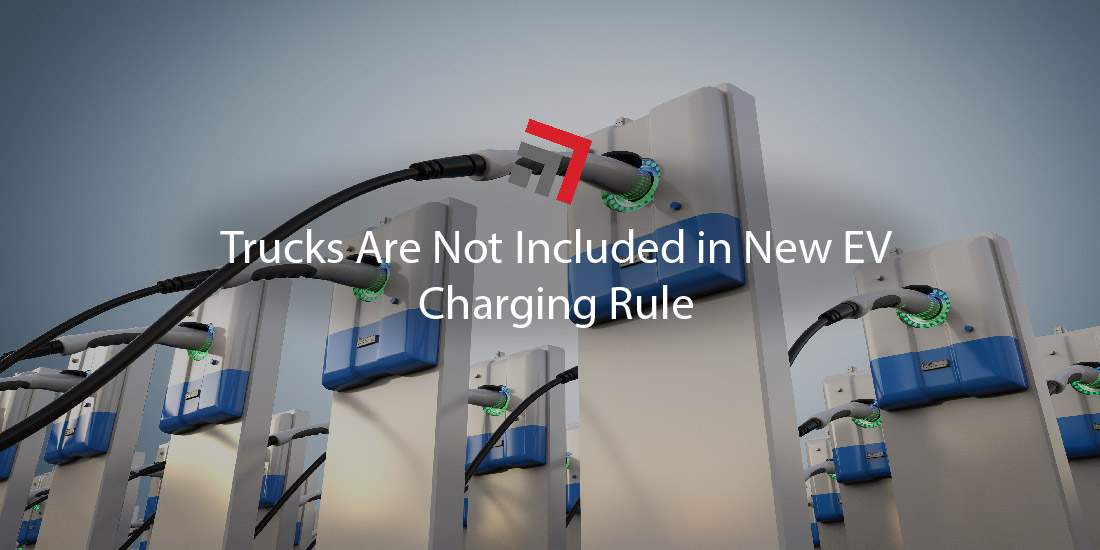A final rule is out for minimum standards of electric vehicle chargers. However, EV commercial trucks and their respective charging infrastructure remain absolved of this recent verdict.
The Federal Highway Administration (FHWA), the federal agency tasked with the ruling, refrained from extending the rule onto EV truck charging as it may “pre-empt the pace of the technological innovation”.
The FHWA’s decision empathizes with concerns shared by trucking stakeholders. From trade groups to motor carriers, industry voices all strook a similar cadence—infrastructure for EV truck charging simply can’t comply with expected regulatory standards at this time.
EV passenger vehicles farther up the road than commercial trucks
During the rule’s public comment period last year (when it was a proposal), one of trucking’s premier advocacy groups, the American Trucking Associations (ATA), claimed there were 1.45 million EV passenger vehicles registered on U.S. roads as of June 2022. To contrast that relatively large sum, the ATA added only 1,215 commercial EV trucks (medium- and heavy-duty) were in operation in December 2021.
Despite hundreds upon thousands of commercial EVs on order, the disparity between the numbers of typical passenger models and commercial truck models on the nation’s roads right now is evident. For many, this indicates the two are in different stages of their innovation and, as a result, should not be lumped together in regulatory standards.
Different industry, different needs
That said, infrastructure needs and regulation around EV commercial trucks will also have to be approached differently than their passenger (lighter duty) cotemporaries.
Trucking stakeholders assert EV fleets will require infrastructure that not only affords them consistent and reliable access, but also distinct and semi-private to their operations as well.
In other words, fleets will need their own charging stations—not open to the general public—that can accommodate the medium- and heavy-duty trucks. Several considerations, like cyber security, location, and signage for charging compatibility, also must be accounted for whenever EV trucks adopt regulatory standards.
Final Thoughts
It’s sensible for the FHWA not to rush standards out for commercial trucks. If regulation was thrusted on trucking, the industry would have to negotiate a developing EV technology around new rules many stakeholders feel would be premature and overlook their operational needs.
The FHWA says it will continue to monitor the EV advancements in the trucking industry for consideration to when minimum standards and requirements will be applicable.
Please contact us if you have any questions regarding this topic or any others in domestic logistics. In addition, stay up to date with weekly headlines from both trucking and rail via our Road Map newsletter.



Recent Comments